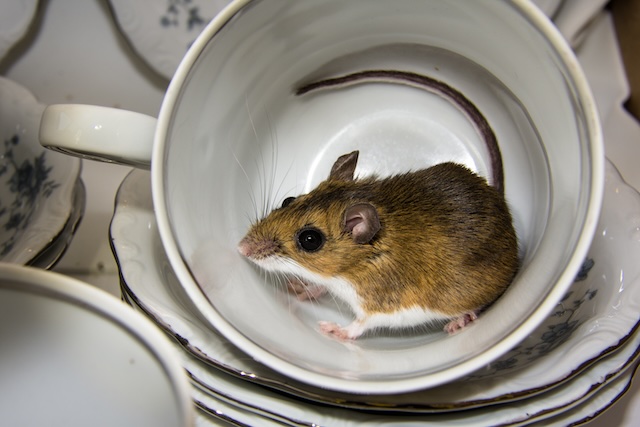Mice that live in our homes have a complicated set of habits that have been formed over time by evolution and needs. To understand house mouse behaviour is to solve the mystery of a creature that, despite its small size, has figured out how to get around in the human world very quickly. Let’s look into the complicated mind of a mouse to figure out how they act when they come into our homes.
1. Inquisitive Wanderers: What Makes People Want to Explore
House mice are natural travellers who are always wanting to find new things. Because they are naturally curious, they like to go to new places and check out every part of our homes. Their interest in our homes isn’t just a way to find food; it’s a basic survival technique that helps them adjust to the constantly changing environment of our homes.
2. Under Cover of Night: Activity Patterns at Night
It is common for house mice to be active at night. Mice come out of their hiding places when the sun goes down and people stop doing things. At night, there are lots of animals searching for food, building nests, and interacting. This change to a nocturnal lifestyle isn’t just a matter of taste; it’s a way to stay safe from predators and make the most of the resources our homes provide.
3. Flexible Taste Buds: Mice as Food Experts
Even though mice are small, their palates are extremely flexible. Their food, which includes everything from grains and seeds to small pieces of human food, shows how clever they are. This ability to change has been very important in their ability to live with people, as they take advantage of the variety of food sources in our homes.
4. Communal Creatures: Figuring Out How Nests Work Socially
Mice are naturally social, and they live together in groups in their nests. These groups are more than just places to live; they are also places where animals meet, groom each other, and raise their young. Learning about the complicated ways that mice interact with each other can help you understand why they choose our homes as places to live together.
5. Busy Breeders: The Strange Phenomenon of Quick Reproduction
It’s amazing how many babies house mice can have. If things are right, a single pair can produce a huge number of babies in a very short time. Mice are very good at keeping their line going because they can breed quickly after giving birth and have short gestation periods. This makes it easy for them to move into human areas.
6. Setting up scent trails and boundaries to mark territory and protect it
A big part of how mice act is that they protect their territory. They leave scent glands and urine marks on their territory, making invisible lines that are useful for different reasons. These smells are a complex way for mice to communicate that helps them both attack and defend themselves. They can show that they are ready to have babies or that they want to set up limits.
7. Mastering navigation: climbing walls and getting through tight spaces
Mice are very quick and agile when they are around people. They can fit through gaps that look too small to be possible, climb up and down walls, and find their way through complicated mazes inside our homes. Their ability to deal with these problems shows how well their senses are tuned and how well they can change.
8. Sensory Vigilance: Getting By With Better Sensations
Mice depend on their senses a lot to live in our world. Their strong sense of smell helps them find food and find their way around, and their sensitive ears lets them know when there might be a threat. These enhanced senses are not just nice-to-haves for development; they are survival tools that allow mice to live with people.
Finally, learning about how house mice behave is like going on a trip into the complicated world of a species that has made its home in our homes. Mice have evolved behaviours that are sometimes hard for humans to understand, like their never-ending curiosity and the things they do at night. These behaviours show that mice are able to adapt and do well in our shared places. Figuring out the secrets of the mouse mind can help people live together better or, if necessary, get rid of pests in a more humane way.
